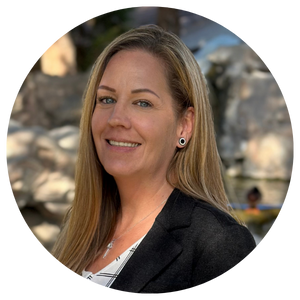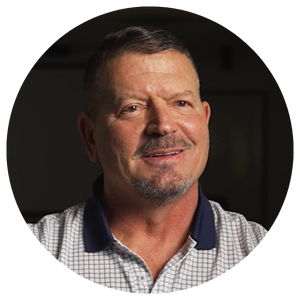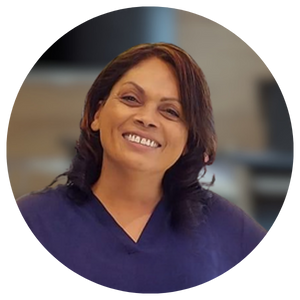Proven Growth.
Real Transformation.
For decades, we've driven business performance for clients while transforming lives.
Our Revenue Model Creating Lasting Impact
At Televerde, we’ve built a new type of company that’s proven business results and social impact aren’t mutually exclusive. Our clients see measurable outcomes because of the way we engage complex buying groups. And we do it by creating second-chance careers for incarcerated and formerly incarcerated women. It’s purpose and profit reinforcing each other, not competing — and it redefines what business growth can look like.
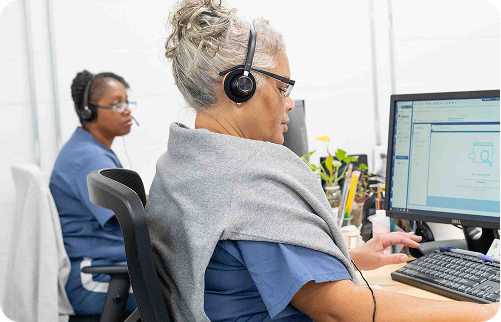
How Our OutsourcedRevenue Model Works
We’ve refined our approach over decades to deliver both predictable revenue growth and a long-term, engaged talent pipeline. Our clients benefit from:
Specialized Talent
Our teams work as an extension of your own, specializing in B2B sales development, demand generation, customer retention solutions, and channel enablement.
Rigorous Training
Every team member goes through rigorous on-boarding, learns your business inside out, and receives ongoing coaching to ensure high-quality buyer and customer interactions.
Proven Outcomes
Companies we serve have seen measurable improvements in conversion rates, sales velocity, and retention.
This delivery model is agile, scalable, and designed to maximize your return on investment, giving you the ability to expand without the overhead of building in-house teams.
Impact in Action:
Driving Growth, Creating Change
We measure success by the growth we generate for our clients—and the transformation we ignite in people's lives. Our model delivers proven outcomes across revenue performance, social impact, and workforce reintegration.
Our model drives measurable business and social outcomes, including:
- Driving revenue growth with a proven model that generated $238M in economic impact and 900+ jobs
- 94% of participants are employed 5 years post-release, earning a median income of $52K vs. $14K nationally
- Recidivism reduced by 91% compared to the national average (5.4% vs. 59.3%)
- Children of participants are 11x more likely to complete high school, breaking cycles of incarceration

Equity at the Core of Our Model
Diversity and equity aren’t just values for us—they’re a competitive advantage for clients like SAP, Cisco, Salesforce, and Adobe, who hire Televerde graduates. Our clients, like us, understand that diverse teams close more deals, innovate faster, and connect with more customers.
By investing in overlooked talent—many of whom are incarcerated women—we build loyal, motivated teams that deliver measurable business results and enhance your brand’s reputation for responsibility.
Partnering for Change:
The Televerde Foundation
The Televerde Foundation, our nonprofit partner, provides the ongoing support needed to help women succeed after incarceration and build sustainable futures.
Career readiness and workforce entry
Personal development and financial literacy
Scholarships and goal-setting programs
Ongoing community-based support
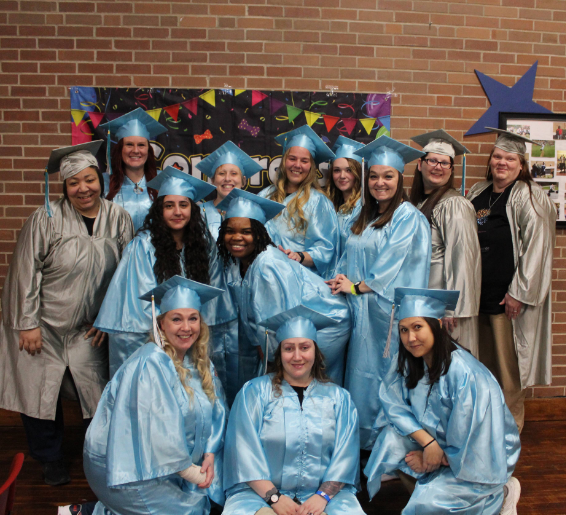
Voices of Transformation:
The Televerde Roundtable
Our Roundtable series features the powerful, personal stories of women who have been part of the Televerde model. These women speak honestly about the challenges they’ve overcome, the skills they’ve gained, and the lives they’re building today.
"Most of us come into this program without a business background, and Televerde basically teaches us an MBA in just a few months."
Danna Tongate
Owner, Frontier Cleaners
"For four quarters in a row, I was a top IMR. I went from struggling with scripts to trusting myself and building real conversations."
Timm Wroe
Televerde, Operations Supervisor
"They invested in me on a level I didn’t even know was possible. It inspired me to live up to those expectations — and I haven’t looked back since."
Virginia Mireles
Rasa, Intake & Onboarding Specialist
These stories bring our model to life—and remind us how second chances, combined with meaningful opportunity, lead to lasting transformation.
Join Us in Redefining Growth
For companies ready to scale, the Televerde model offers a unique path to growth with purpose.
Partner with Televerde
Unlock unparalleled B2B growth and empower your sales strategy with our expert, human-centered outsourced model.
Support the Foundation
Contribute to programs that provide second chances and transform lives through education and empowerment.
Frequently Asked Questions
A business model that proves business results and social impact aren’t mutually exclusive. By combining revenue-generating services with a social impact mission we deliver enterprise sales, marketing, and CX support—while building sustainable careers.
They are paid for their work. Televerde provides fair wages, hands-on experience, and career development opportunities that empower—not exploit—the women in our program. Our goal is to prepare them for long-term success, both during incarceration and after their release.
Women receive training in B2B sales, marketing, customer experience, and partner support. Many earn industry certifications and receive mentorship during their time with us.
All employees are required to earn a high school diploma or GED, and many go further with access to college-level courses, certifications, and personal development programs.
We run contact centers in U.S. facilities including Arizona and Indiana—each of which is a cornerstone of our second-chance hiring model.
Televerde graduates experience significantly lower recidivism—just 5.4%—and higher employment and income rates than national averages to help drive lasting generational change.
Yes. Televerde has helped global clients grow revenue and pipeline while delivering transformative opportunities for thousands of women. Here’s are just some of the results of this model:
- $65B+ in pipeline and $12B in revenue generated for global clients
- Higher job placement rates and long-term income growth for participants
- Reduction in recidivism for program graduates
- Strengthened families and reintegrated communities
See our Impact Report for details.
We support B2B companies across industries like technology, manufacturing, and professional services—helping them scale pipeline, improve customer experience, and grow partner ecosystems.
You can partner with us, explore career opportunities, or support our nonprofit through donations or advocacy.
The most powerful way to support Televerde’s model is to partner with us. Every new client creates more second-chance career opportunities and fuels the growth that keeps our program thriving. Televerde’s clients make second chances possible while gaining a proven, high-performing sales and customer experience partner.
You can also explore career opportunities with us or support the Televerde Foundation through donations, advocacy, or partnerships.

